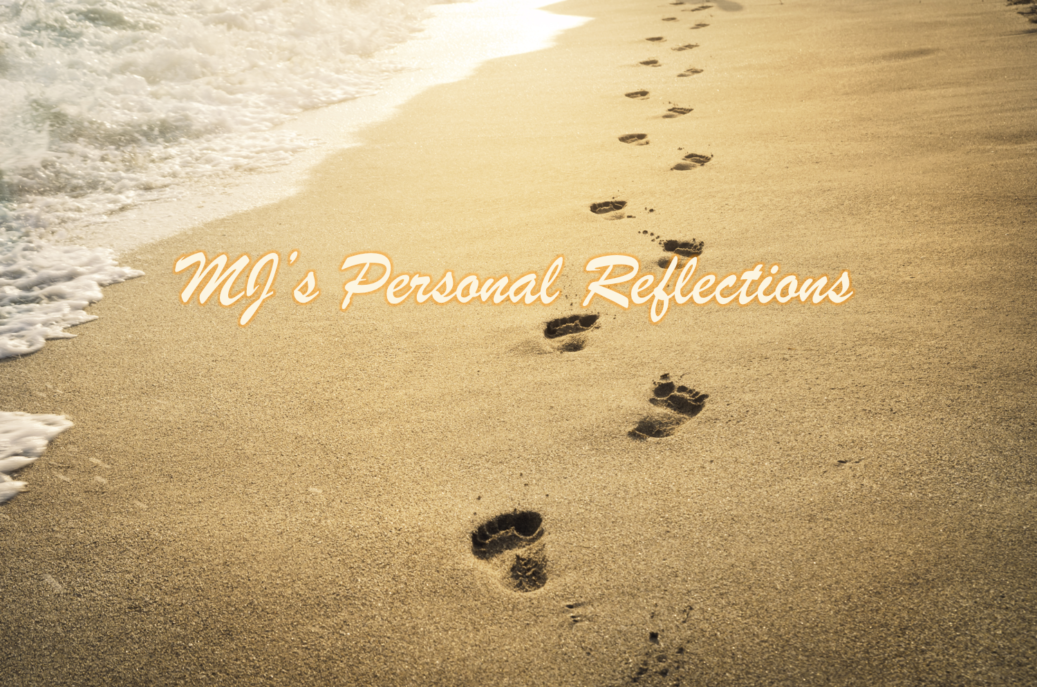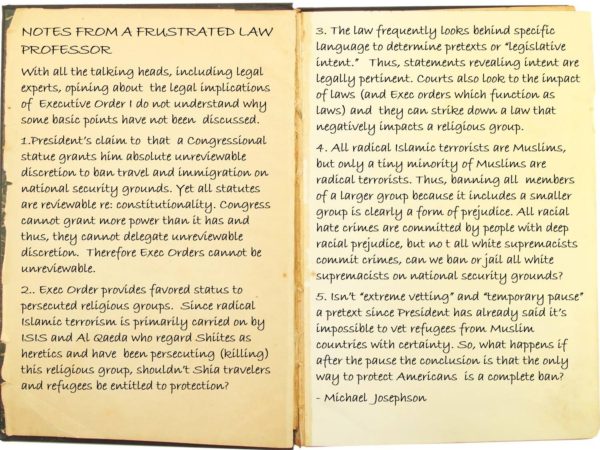NEW FEATURE. – This is a new feature for the WWM website consisting of journal-type entries of personal reflections of Michael Josephson.
Welcome to the inner workings of my mind. These reflections aren’t full essays like my commentaries. Instead, they are snippets of thoughts dictated as I walk and illustrated by photos taken on my iPhone. I share these observations with some trepidation. I confess to be fearful that they may seem like little more than self indulgent nonsense, but I’m hopeful that some portion of my readers will find them valuable. We would love your feedback and hope you will find enlightening, inspiring or informative – or at least, interesting.
December 30, 2017:
EXCERPTS FROM A SPEECH NOT DELIVERED.
The program of speeches and letters at my birthday party went very long. I loved the combination of very funny roasts and very nice eulogies that made it like a fun funeral, but as a result, the speech I actually spent a lot of time on had to be truncated on the fly. I fear both the tone and content I intended was butchered by me.
So, either stop reading or forgive the self-indulgence of letting me in this and subsequent posts, better articulate some of the thoughts and feelings I wanted to convey at an occasion that meant a lot to me – a chance to talk to my family and friends who contributed so much to my life.
First, I intended to spend more time and with more specificity expressing my gratitude in specific terms to many specific people. I deeply regret I was unable to do that and i will look for other ways to convey these feelings.
But there are other things as well.
While preparing my talk and reviewing the highlights and low-lights of 75 years of people I knew, things I did and things I said, I came to believe that what matters most is not the actual events in our lives but how we and others remember them.
Though it may have been too heavy for the occasion, another sign of emotional intelligence deficiency, I hope it is not pretentious to share a portion of what I wrote:
As I reflect on all the things I’ve said and done with the benefit of highlight and the perspective only age can deliver I wish I could go back in time and kick my own ass!
Maya Angelou’s observation vastly changed my perspective – but too late. She said people don’t always remember what you say or even what you do, but they always remember how you made them feel.” This insight caused me to reflect on how often people left an interaction with me with hurt feelings, self doubts or outright resentment.
This is never what I intended, but I approached interactions with the belief that the truth (or what I thought was the truth) was more important than anything else – even kindness.
To the extent I can identify them I regret times I was more confrontational, demanding, aggressive or blunt than appropriate. I realize good intentions not enough and that the impact of my choices would be measured, not by my intention or the way I thought Mataya actions would or should be received, but by the feelings I actually evoked and the memories of those feelings that persisted long after the action.
Thus, what matters is really our memories because real life is just an endless series of disappearing moments.
Everything we see, hear or do disappears the instant after it happened. The only evidence of the event is how we and others remember the event.
Though our memories are fragile and often inaccurate, they are the only durable evidence we have of our lives. Some memories fade and. sadly, some disappear forever – there are large chunks of my life, including significant relationships that have been lost simply by involuntary forgetting and its frightening to know this progression of memory loss is likely to continue. It makes me want to donate money to the Alzheimer’s Foundation, but I keep forgetting to do so.
No one can control what others will remember, but I know I can and should be more thoughtful about the memories I create and I can do a better job of creating good memories.
I also hope for myself and each of you I may have offended or annoyed over the years, that the not so good memories can be discarded and replaced with memories of the warmest and happiest moments we had.
Most of all I hope I can start over and do a better job.
February 11, 2017:
WARNING: PERSONAL BELIEFS WITH POLITICAL IMPLICATIONS FOLLOW
For thirty years I have tried to keep my comments and essays focused on issues of morality and ethics. I only rarely address issues that are so highly political that they invite partisan conflict. I pride myself that on one survey, about half of my think I am essentially conservative while the other half think I am fundamentally liberal. Though I have strong views on all important issues, they do not fall neatly under any ideological label and certainly not any political party. I have been an independent since I could vote and do not identify myself as either a Democrat or Republican. I am, however totally committed to truth, justice and what i think of (in Superman terms) as the American Way. I have and will consistently oppose lies and deception whether they come from Hilary Clinton or Donald Trump. I oppose all forms of racial, gender or sexual orientation prejudice. I believe in responsibility, including the obligation to sort thru credible and non-credible sources and verify facts before speaking. I oppose bullying, name-calling and other forms of verbal aggression. Thus, I confess that I am exceptionally dismayed by the current state of politics and the the style and practices of people in power that violate my core ethical principles, irrespective of my view on policy issues. Thus, my disapproval of many of the things said and done by Presient Trump are deep and pervasive and if this offends you please read no further.
February 11, 2017:
Whatever our position on travel bans to protect us from terrorists we have an ethical duty to understand the legal, practical and, of course, the moral dimensions of the issue. I think there are legal, practical and moral arguments supporting each position but we must base actual policies on facts and rigorous analysis. Here are some factors to consider.
January 30, 2017:
ENDS & MEANS
Morality requires that we never lose sight of the importance of both what we do and how we do it. Both our objectives (ends) and actions (means) must be ethical – honest, respectful, responsible, caring and fair. Narrow focus on accomplishing desired results, without carefully considering the methods used to get them, puts us on a road to moral decay. There are times where the ends justify the means but whenever we resort to lying or deception or any form of violence, we must be very careful that the ultimate damage to our credibility and souls does not outweigh the immediate advantage achieved. People in politics and policing are especially vulnerable to the rationalization of “noble cause” — lying and recognizing the the long-term impact of forfeiting credibility. I am concerned at the willingness of so many people to ignore means in pursuit of desirable ends. I agree with the philosophical perspective that ends and means are inextricably intertwined and that the way a result is achieved is in itself part of the result. Even if this is not true, a moral person must apply ethical principles to all their actions, regardless of the perceived nobility of the goal.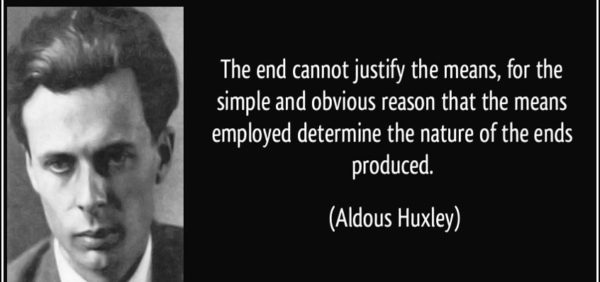
Responsible Decisions – Determine What is True, What Really Works and What Is long-Term Impact
Everyone agrees that our government has a duty and right to protect its citizens from terrorists and criminals. The moral challenge is to be rigorous in collecting facts about what is true, what works and what is the long-term impact of our actions:
- what is true (e.g., the dangerousness of visitors and refugees from certain countries, how many people physically attended the inauguration, how many illegal votes were cast),
- what really works (e.g., Can a massive wall really be built along the entire border? Will it significantly reduce the entry of drugs and illegal immigrants, and will Mexico really pay for the wall? Will waterboarding or even more extreme torture result in information that saves lives and could similar information be attained through other means?)
- what is the long term impact of our actions on credibility and safety.
IS SELF-PROTECTION A MORAL GET-OUT-OF-JAIL-FREE CARD?
No one doubts our right to protect ourselves and our families, but there is danger in using self-protection as a moral get-out-of-jail-free card to justify actions that infringe the rights of or inflict injury on those we fear. We have a moral responsibility to distinguish between imminent and possible threats and assure that our protective actions are proportional to the threat and based on solid evidence, rather than fears and suspicions.
The law of self-defense provides a time-tested guide: we may use whatever force is necessary to protect ourselves from what we reasonably believe is imminent bodily harm. The person asserting the defense has the burden to demonstrate that the belief was reasonable and that the treat was imminent.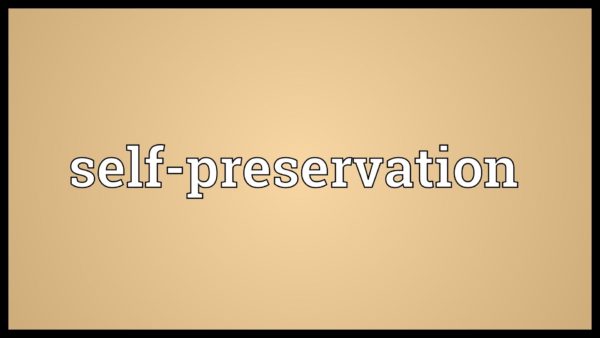
Today were living in a world where even a slight possibility of injury is used to justifying imposition of huge burdens on other people. It’s inconsistent with our deeply entrenched values of respecting the dignity and rights of others to give so much weight to our concern for self-protection, that it justifies inflicting harm and imposing burdens on other who might harm us sometime in the future. That reasoning would justify permanent incarceration of drug addicts, gang members and even people with dangerous contagious diseases.
I fear the momentum of public sentiment driven by unsubstantiated fears will cause us to abandon our abiding commitment to justice and the respect of others. I wonder how many people will endorse the fundamental principle of American jurisprudence that it is better to let ten guilty men go free than punish one innocent one.
No one doubts the right and propriety of our country to view all its actions through the lens of self-interest and place a high priority on protecting and benefiting our citizens. But I worry that the jingoistic rhetoric about putting “America First” can be used as an excuse to ignore our legal (by treaty) and moral obligations to others. We need not sacrifice ourselves or unreasonably endanger ourselves for others but we should not ignore the plight and human rights of others and our duty to do our share to heal the world.
We have a moral duty to not be controlled by frantic fearfulness fomented by those who do not have the courage or confidence to rely on our resourcefulness and strength to protect ourselves if and when we need to. We have a moral duty to distinguish between fear of something from fear of somebody. We have a moral duty to demonstrate moral courage, to resist the rhetoric of fear that leads us to cowardice
Our fear of terrorism, of drugs, of illegal immigrants draining public resources and taking jobs from American citizens are legitimate — but we must be responsible about how we deal with those fears when they affect the lives of other people. We have to have faith on our ideals and believe we can live freely and honorably without impinging on the freedoms and dignity of others.
TRUST & CREDIBILITY
I am deeply disturbed by the ferocity and frequency of allegations of lying both by and about the President and the media. I am not naïve. I know self-serving deceptions and spinning are part of daily political communication and that the media has a penchant cynicism and fomenting controversy but what’s going on now is new and quite horrible.ever in my lifetime have I seen such vicious conflict about what is true. Daily disputes about huge and minor matters from the intent and impact of Russian hacking, to the number of illegal voters, to the size of inaugural crowds dulls our senses to the true importance of truth and accuracy.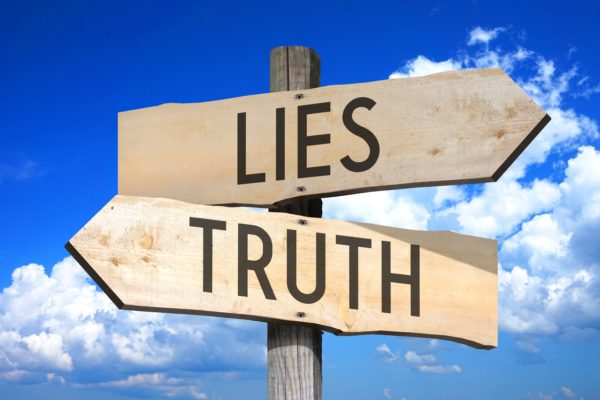
I see a growing number of citizens choosing to retreat from the noise and tumult. I fear we are condoning blatant bigotry, irresponsible irrationality and outright lying and succumbing to the temptations of partisanship – believing only what we want to believe, putting feelings over facts. Vast swaths of Americans of all ideologies are avoiding the unpleasant and difficult responsibility to evaluate the accusations of dishonesty, sort through the hair-splitting rationalizations and stay focused despite deliberate distractions to perform their vital role as citizen jurors burdened with the responsibility of rendering verdicts about what is true and what is not and who to trust.
It is, at best, irresponsible and at worst immoral to believe something simply because we want it to be true or to believe something simply because it is to our advantage. Our responsibility as rational human beings with a conscience is to adjust our beliefs to the facts, not the facts to our beliefs. We cannot give any credence whatsoever to assertions made in blatant disregard for the truth or the evidence. Whether couched as opinions or facts, assertion not based on rational reasons, honest intentions and verifiable facts are unworthy of repetition, let alone belief.
In assessing a leader is trust and credibility just a factor to consider or is a prerequisite to support? I cannot believe or follow a leader I do not trust and respect. I cannot trust or respect someone I cannot believe. I cannot support someone whose actions and words flout my basic moral convictions. I cannot trust someone who is irrational, who chooses to believe things based upon unfounded claims, who doesn’t seek real evidence and cannot distinguish between the credible and preposterous. I cannot trust someone who is so irresponsible that he doesn’t bother to verify his claims and accusations or consider both psychological and tangible consequences of his actions.
A person who makes claims and assertions that he knows or should know or false or invest misleading forfeit any claim to trust. A person who bases opinions on insubstantial and reliable information simply because it supports his aims is someone who forfeits any claim to trust. Any leader who has no right to trust has no right to lead.
It is easy for those who oppose the ideas and goals of President Trump to judge him and oppose him because they oppose his objectives. A much greater challenge challenge is presented to those who agree with all of our many of his ideas and goals but believe his character and his methods are essentially immoral, or at best, irresponsible. For the people who want what he wants the question is how long will they be able to tolerate some of the way he pursues their common goals.
Now for something completely different
NON-POLITICAL RANTS AND REFLECTIONS
January 14, 2017:
Reflections Walking on the Beach
For more than twenty years I’ve lived only a mile or so from the ocean with a very wide white sand beach. I’ve never been much of a beach person, or for that matter much of an outdoors person, so I doubt I’ve gone to the shore more than a dozen times. As part of a new health commitment (I’ve lost 60 pounds in about 6 months) I decided to take long walks for the exercise and to get to know my environment better. I decided to walk all the way to the beach and was shocked to discover it took only 20 minutes and the walk was quite pleasant. How could I not know how easy it was? How could I not have taken advantage of this great opportunity? After berating myself for a few minutes I made a choice – gratitude over guilt. I decided to focus on my fortune of discovering this previously ignored pleasure. Lately, I’ve been taking and enjoying the walk 3-4 times per week.
—- As I walked at the water’s edge, it struck me that the deep footprints I left on the wet sand seemed like irrefutable proof that
I was there. I was leaving my mark on this lovely beach. Yet the proof of my presence was perishable, erased by a successive small ripples of the tide. Is it the same with my words? Are they just today’s footprints in the sand?
____________________
Shortly after New Year’s Day I came across a burned-out Christmas tree alone on the beach. Somebody either dragged the tree to the beach and set it on fire or carried the burned tree to its resting place. What was the intent of the arbor arsonist? But whatever the purpose, I couldn’t help but see the dead, out-of-place Christmas tree as a metaphor. What caption you would write to this photo?
When the sun is behind us, we all cast shadow that is much bigger then when the sun is in front of us. People generally only see our shadow yet the shadow is a distortion of the person who casts it. Reminds me of Lincoln’s observation: one’s character is the tree, reputation is the shadow.

